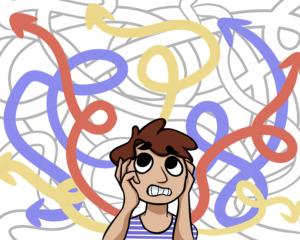Are children who stutter more anxious than those who don’t? Results from a community sample of 11 year old children with persistent stuttering
“We found no evidence that … 11 year old children who stutter were more anxious than those who had recovered from stuttering and nonstuttering controls” – Smith et al. 2017
This study examined anxiety and emotional and behavioural functioning in 11 year old children with persistent stuttering. Results showed that the 20 individuals with persistent stuttering (2.4% of the study population) were no more anxious than those who had recovered from stuttering (n=121, 14.4%) and those who did not stutter (n=702, 83.3%). They also had similar levels of behavioural and emotional functioning.

Maternal mental health scores were comparable for children who had persistent stuttering, recovered stuttering or no stuttering.
An interesting finding was that the persistent stuttering group had a higher proportion of children with Autism Spectrum Disorder (ASD) or learning difficulties. Authors speculated that this may be because stuttering treatment is often not a high priority for children with additional communication and developmental impairments. Further, when therapy is accessed, additional challenges associated with ASD and learning difficulties (e.g., low levels of joint attention and self-monitoring) may limit a child’s successful progression through treatment.
Smith, K. A., Iverach, L., O’Brian, S., Mensah, F., Kefalianos, E., Hearne, A., & Reilly, S. (2017). Anxiety in 11-year-old children who stutter: findings from a prospective longitudinal community sample. Journal of Speech, Language, and Hearing Research, 60(5), 1211-1222. doi: 10.1044/2016_JSLHR-S-16-0035
